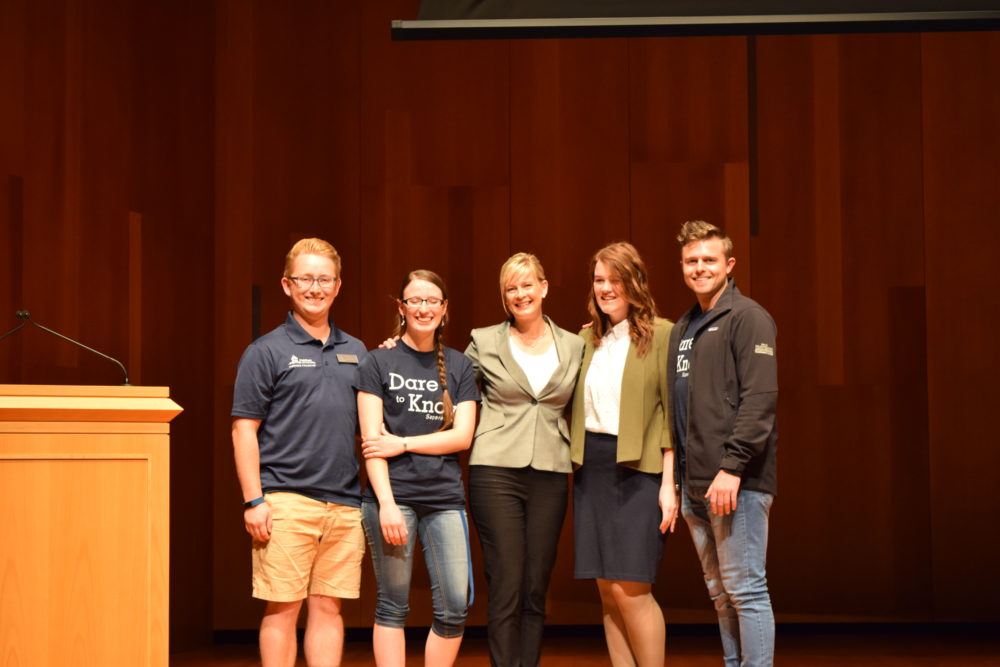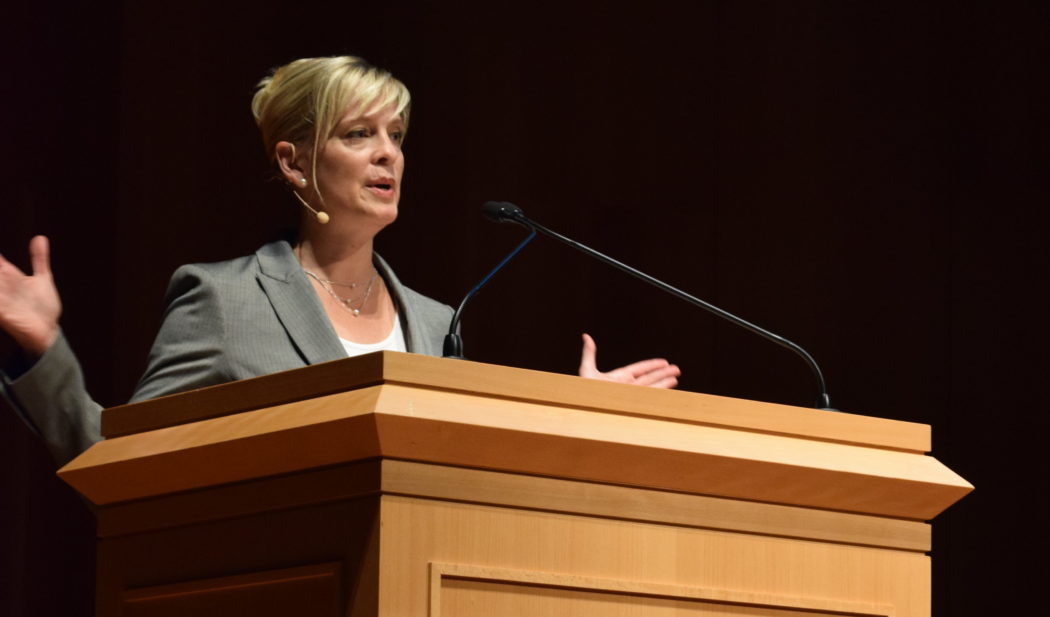Dr. Jeannie Johnson delivers 43rd annual Honors Last Lecture
The Utah State University Honors Program presented the 43rd annual Last Lecture Oct. 3 at the Russell Wanlass Concert Hall. The chosen lecturer for this year was Dr. Jeannie Johnson, an assistant professor of Political Science at USU.
Students, faculty, staff and community members filled the concert hall Wednesday to hear Johnson’s lecture titled “America in the Mirror: Reflections and Blindspots.”
Though the lecture is titled the “Last Lecture,” it is not, in fact, the professor’s literal last lecture. Each professor who is nominated to deliver the lecture is tasked with crafting a lecture that they would deliver if it was indeed their last.
Johnson was selected by a committee of seven honors students. Honors students nominate different professors across all disciplines to give the lecture. After receiving a nomination, each nominee goes through a rigorous interview process before the official lecturer is chosen.
Luke L. Flynn, the chair of the 2018 Honors Outstanding Professor Selection Committee says that the selection process is difficult not only for the nominated professors but for the committee themselves.
“We meet with some of the best professors, if not the best professors at USU. From there, we listen to what they would talk about, interview them and then have to make the hardest decision of only picking one of them,” Flynn says.
Each nominee for the Last Lecture is chosen based on their ability to speak in front of a crowd, the novelty of their topic, their excitement about their chosen topic and the topic’s applicability to students.
Flynn says Johnson was chosen because she was able to articulate all of those things to the committee and they felt her topic of discussion would be of particular interest to students this year.
“When she got to the climax of her speech, I was very glad that we had selected her to give it,” Flynn says.
Some of the honors students in attendance at the Last Lecture had taken Johnson’s classes before and were excited to see one of their professors delivering this year’s lecture.

Whitney Johnson, a junior studying Political Science, attended the lecture. Whitney has taken classes from Jeannie in the past and admires her for her strong advocacy and mentorship that she provides for students.
“She is such a valuable asset to this university because she brings an important perspective, experience, and her overall care and love for students and academia are unbelievable. When you walk into her class and feel her energy there’s really nothing like it,” Whitney says.
Like many of Jeannie’s classroom lectures, this last lecture was filed with the knowledge she has gained over years of research and experience, in addition to first-hand accounts to prove her points.
Jeannie centered her lecture around four different American values. According to Jeannie, they are generally positive values that need to be understood in the context of how foreign entities would view these values. When that understanding happens, Americans will be able to make positive changes necessary to unite our nation and bridge the political divide.
The four values are: “a can do, problem solver attitude,” “an affinity for the common man,” “optimism as a national brand” and “generosity.” Jeannie used first-hand accounts of U.S. Marines to illustrate these values and to prove that they are able to exist at home as well as in conflict zones abroad.
Jeannie said she was honored, excited, and “overwhelmed” to have been chosen to represent such “bright, talented” students who have “already achieved so much in their particular fields.”
Although Jeannie’s lecture provided many possible take-away’s for attendees, she said there was one that she would want her listeners to remember.
“In an era in which it is unfashionable to be patriotic, there are genuinely virtuous reasons for figuring out what’s worth defending internally about our country. What’s worth growing and strengthening,” Jeannie says.
She continues.
“In order to do that, we need to be reflective of not only our critical selves but reflective about the country’s virtues. Because you can’t preserve them unless you name them. Unless you recognize that they’re there,” she says.
The Last Lecture series is presented by the Honors program every year. For more information about the Last Lecture series or to read or watch past years’ speeches, they can be found at https://honors.usu.edu/get-involved/last-lecture/index
@allisonallreddd

